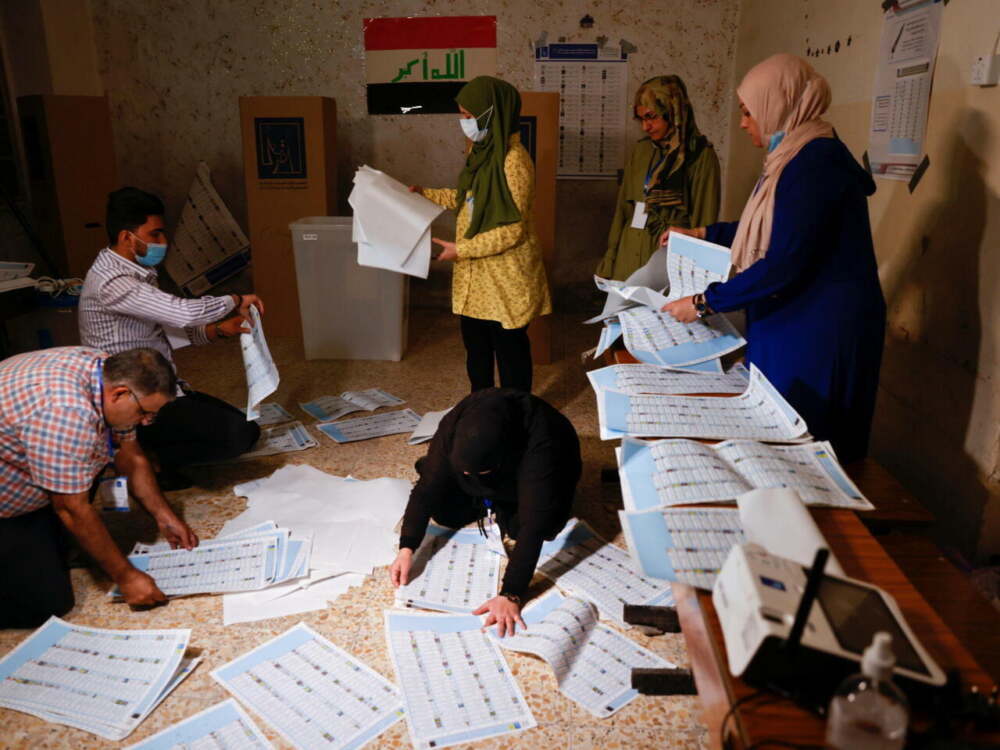Iraqis went to the polls on Tuesday in a national election that few believe will bring the sweeping reforms or stability the country desperately needs. The vote, which will determine the makeup of Iraq’s 329-seat parliament, comes amid deepening public frustration with political corruption, poor governance, and deteriorating living standards.
A Vote Overshadowed by Discontent
Polling stations opened across Iraq early in the morning under tight security. Yet, in many areas, the lines were short — a stark reflection of voter apathy. Many Iraqis, especially the younger generation, have lost faith in the political process, seeing it as a tool of self-enrichment for the ruling elite rather than a means to improve people’s lives.
“I don’t believe anything will change,” said a shopkeeper in Baghdad’s Karrada district. “Every election promises hope, but every government brings disappointment.”
Despite government campaigns urging participation, analysts predict one of the lowest voter turnouts since 2003. Large segments of the population, disillusioned by years of broken promises, are staying home — particularly after Shiite cleric Moqtada al-Sadr’s influential movement announced it would boycott the polls.
Political Landscape: The Usual Faces, Familiar Patterns
The elections pit Prime Minister Mohammed Shia al-Sudani’s State Administration Coalition against rival alliances composed of Sunni, Kurdish, and independent candidates. Al-Sudani, who rose to power with backing from powerful Shiite factions, is seeking a renewed mandate. However, his government’s record on corruption, unemployment, and essential services has left many skeptical about his leadership.
Iraq’s parliamentary system, designed after the U.S.-led invasion in 2003, allocates power along sectarian lines: the prime minister is always Shiite, the parliament speaker Sunni, and the president Kurdish. While this formula was intended to ensure balance, critics say it has entrenched sectarian divisions and fostered an environment of political stagnation.
Behind the scenes, powerful blocs aligned with armed militias and regional actors continue to influence decision-making. Even before the vote, political observers noted that the same elite networks that have dominated Iraqi politics for two decades are poised to retain control.
A Generation Left Behind
Iraq’s young people, who make up more than 60% of the population, remain the most disillusioned. Many of them came of age after the 2019 protests, when thousands took to the streets demanding jobs, accountability, and an end to corruption. Those protests led to hundreds of deaths and eventually forced the resignation of the government at the time.
Six years later, little has changed. The unemployment rate among Iraqi youth remains high, electricity shortages continue to plague cities, and infrastructure remains in decay despite billions of dollars in oil revenue. “We are rich in oil but poor in everything else,” said a university graduate from Basra. “Politicians live in luxury, while we live without water or power.”
Security and Foreign Influence
Security forces maintained a heavy presence across the country to prevent violence, especially in provinces bordering Syria and Iran where armed groups remain active. While Iraq has largely recovered from the years of conflict with the Islamic State group, remnants of extremist cells continue to launch sporadic attacks in rural areas.
The elections also carry regional significance. Iraq finds itself balancing relations between the United States and Iran — two rival powers with deep influence in Baghdad. Washington continues to provide military support to Iraq’s security forces, while Tehran wields sway through Shiite political and militia networks. Whoever forms the next government will have to manage this delicate equilibrium, maintaining stability while preserving Iraq’s sovereignty.
Low Turnout and the Road Ahead
Preliminary reports from the Independent High Electoral Commission indicate low voter participation, with turnout figures hovering well below 50%. Many polling stations in Baghdad, Mosul, and Najaf reported steady but sparse attendance throughout the day.
Observers warn that low turnout could weaken the next government’s legitimacy and embolden political factions to engage in prolonged coalition bargaining. It may take weeks — or even months — for Iraq’s leaders to agree on a new government, as competing blocs negotiate cabinet positions and policy priorities.
Political analysts argue that without structural reforms, Iraq’s parliamentary system will continue to produce weak coalition governments vulnerable to paralysis. “This election is not about change,” said a political science professor in Baghdad. “It’s about preserving power. The faces may change slightly, but the system remains the same.”
Hope Amid Fatigue
Despite the widespread cynicism, some Iraqis continue to cast their votes in the hope that even small shifts in parliament could lead to progress. Civil society groups, women’s advocates, and independent candidates — though facing uphill battles — represent a new generation determined to break the cycle of corruption and sectarianism.
One independent candidate from Najaf described his campaign as “a fight against an entire system built to exclude outsiders.” His small team of volunteers knocked on doors, promising transparency and accountability. “If we don’t try, nothing will ever change,” he said.
Conclusion
As polls close and ballots are counted, Iraq stands at a crossroads. The outcome may not immediately alter the balance of power, but it will shape the next phase of a country struggling to define its future. With an economy reliant on oil, youth unemployment at critical levels, and infrastructure in ruins, Iraq’s next leaders face enormous challenges.
The question is whether they will seize the opportunity to break from the past — or continue the familiar cycle of promises unfulfilled. For millions of Iraqis weary of corruption and conflict, the hope for real reform remains faint, but not entirely extinguished.
Summary:
Iraq’s latest parliamentary election unfolded under a cloud of public frustration and distrust. With low turnout, entrenched political elites, and ongoing regional pressures, many citizens doubt that meaningful change will emerge. Yet amid fatigue and anger, a small but determined push for accountability and reform continues — keeping alive a fragile hope for Iraq’s democratic future.
















Leave a Reply